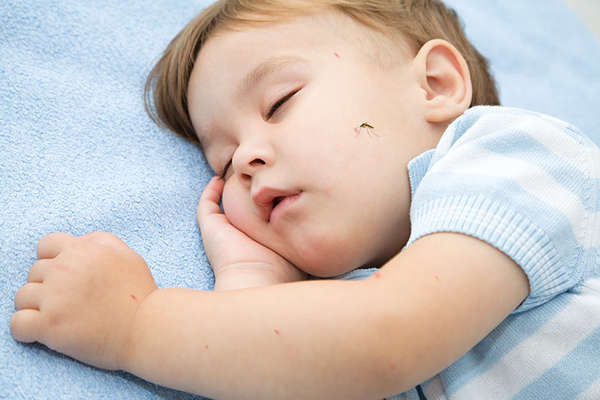
Why you shouldn’t run for blood tests on Day 1 of fever?
23 Sep 2015 | 5 min Read
Dr.Subash Rao
Author | 10 Articles
Interview With Dr. Subash Rao
What exactly is Dengue (what kind of infection affecting which organs)? How serious can get if it is not treated early (especially in children)?
Dengue fever is a viral infection which is transmitted by a mosquito bite (Aedes aegypti). It is also called breakbone fever as it causes intense joint and muscle pains.
Dengue fever is not transmitted directly from one person to another. Hence it is not a contagious disease, as is commonly perceived.
When the Aedes aegypti mosquito (which has previously bitten an infected person) bites a new person, then the virus is transmitted into the human body leading to dengue fever. The Aedes aegypti mosquito breeds in fresh water. Hence it is more common during monsoons. It also breeds in fresh water accumulating in flower pot trays, defrost tray of fridges, AC water trays etc.
When a person is infected with the dengue virus almost all organs of the body can get affected. Most commonly affected organs are the blood vessels, liver, kidneys, intestines, the blood cells (White blood cells (WBC), platelet) and also the brain.
What are signs and symptoms of Dengue?
Symptoms usually begin 4-6 days after the person contracts infection and lasts for upto 10 days. The common symptoms are: High fever, severe headache, severe joint and muscle pain, pain behind the eyes, nausea, vomiting and skin rash. The symptoms usually appear 3 to 4 days after fever.
Keep in mind – dengue fever can be difficult to diagnose because its symptoms overlap with those of many other viral illnesses.
There may be mild bleeding from gums, nose or bruising of skin.
Younger children and people who have never had the infection before tend to have milder cases than older children and adults. Though most of the people affected suffer the mild disease, some of them can have serious problems or complications. These occur usually when the fever abates. These include dengue hemorrhagic fever (due to damage to the blood vessels, blood cells and lymph) and the dengue shock syndrome (due to failure of the circulatory system)
People with weakened immune systems and those with a second or subsequent dengue attack can have a greater risk of developing these complications.
What are the typical diagnostic tests carried out to confirm Dengue?
A simple cbc (Complete blood count) can give a clue to a diagnosis of dengue. However specific tests are available. Remember the blood tests should not be done on day one of fever as they may be negative. These should be done only when the doctor recommends.
Is hospitalization mandatory in most cases? Or is home care good enough if it is not a severe infection?
Not every case of dengue needs to be hospitalised. At the same time, one must be vigilant to look for the presence of any danger signs which mandates hospitalization.
These include- lethargy, vomiting, passing less urine, abdominal pain or swelling, bleeding from gums or nose, a deranged CBC report.
How contagious it is? What care should be taken if one of the family members get infected?
Dengue is an infectious disease but not a contagious disease. It cannot be spread from one human to another directly. It can only be transmitted through a mosquito bite.
What is an average recovery time if someone is infected?
Usually recovery time is 7-10 days.
What are the precautions to be taken to prevent dengue?
The transmission of the virus to mosquitoes must be interrupted to prevent the illness. To this end, patients are kept under mosquito netting until the bout of fever is over and they are no longer able to transmit the virus to a biting mosquito.
To prevent mosquito bites, wear long pants and long sleeves. For personal protection, use mosquito repellants.
To reduce the mosquito population, get rid of places where mosquitoes can breed. Empty water accumulating in trash cans, cups or flower pots, old tires etc. that collect during the rains. Also clear water from the defrost tray of fridges, ac water trays etc.
Limit exposure to mosquitoes by staying indoors for two hours after sunrise and before sunset as the Aedes aegypti mosquito is a daytime biter with peak periods of biting around sunrise and sunset.
What is the treatment of dengue?
There is no specific medication for a dengue infection .Most importantly one must consume plenty of liquids and keep oneself well hydrated. To control fever take Paracetamol and never aspirin as it can worsen the bleeding complications. Look out for the danger signs (mentioned above) which may require hospitalization.
What kind of foods or home care is recommended for the convalescing period?
Though some fruits like dragon fruit, kiwi fruit, papaya leaves have been recommended, there are no scientific studies to prove their efficacy.
Is there a vaccine against Dengue?
There is currently no vaccination available for dengue fever. There is a vaccine undergoing clinical trials.
Read on to learn about Hand, Foot and Mouth disease in children.
Read on to learn about Cradle cap.
To consult Dr. Subash Rao in person, find his details here.
A


Suggestions offered by doctors on BabyChakra are of advisory nature i.e., for educational and informational purposes only. Content posted on, created for, or compiled by BabyChakra is not intended or designed to replace your doctor's independent judgment about any symptom, condition, or the appropriateness or risks of a procedure or treatment for a given person.
